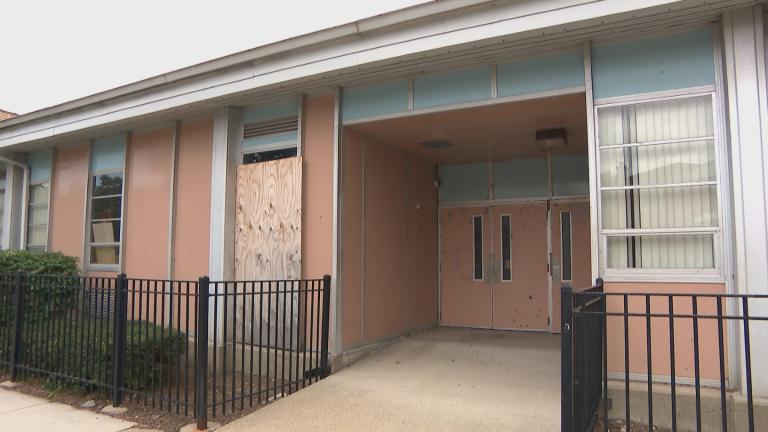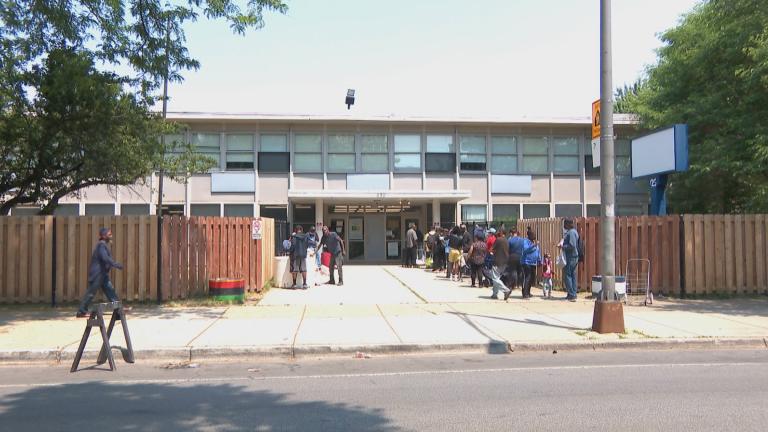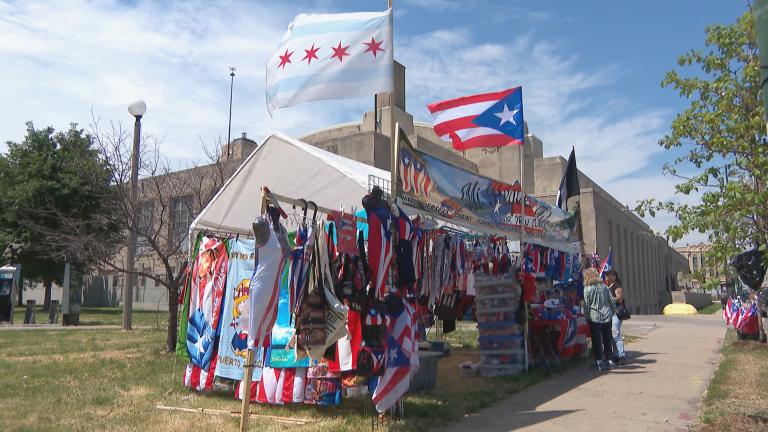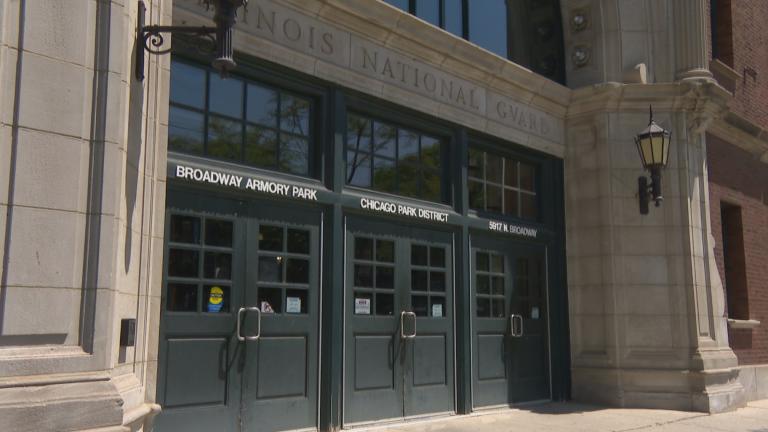“Chicago Tonight” is hitting the streets to speak with your neighbors, local businesses, agencies and leaders.
This Saturday marks one year since the U.S. Supreme Court’s decision on Dobbs v. Jackson Women’s Health Organization, which reversed the 50-year-old Roe v. Wade decision.
Since then, many people have flocked to Illinois in search of abortion access.
One of those spots for access is the Planned Parenthood in Waukegan. The clinic opened in 2020 — just before the pandemic and two years before the Dobbs decision.
Interactive map: More from our community reporting series
PPIL said it had anticipated it would be necessary to serve patients in neighboring Wisconsin who could lose access to abortion when Roe was overturned.
The organization was right. After Dobbs, patients have not only come to Illinois from neighboring states, but from a total of 34 states around the country, even as far as Florida.
For a few hours every Tuesday morning, anti-abortion activists stand across the street from the Waukegan clinic, attempting to connect with the people coming to Planned Parenthood for abortion services.
“We’re out here with a feeling of love in our hearts,” said Lake County Right to Life board member Dennis Rowan. “We just want to give them better options than to have their baby killed.”
Rowan said one of those options is the Aid for Women Pregnancy Center just two blocks away.
“All kinds of different services that can help them to save their child, or give them some information as far as other options,” Rowan said. “… They might want to have their baby adopted.”
A bill sent to Gov. J.B. Pritzker’s desk for signing would make so-called crisis pregnancy centers subject to consumer fraud standards.
Under the Deceptive Practices of Limited Services Pregnancy Centers Act, these clinics could be sued if they engage in “unfair or deceptive acts or practices.”
WTTW News was allowed inside the Waukegan Planned Parenthood facility shortly before it opened to patients. An empty waiting room would eventually see more than 30 patients for the day for a variety of medical needs.
And since the Dobbs decision, this clinic has seen more and more patients making the trek from Wisconsin.
Dr. Kathy King is one of the Wisconsin-based providers who also makes the trip to meet the increased demand.
“It’s not something we anticipated we would have to do, but all of our staff are immensely committed to this work,” King said.
King recalls the day the Dobbs decision was announced as one of the most devastating for her as a health care provider.
“We were only able to provide care to four of 70 patients,” King said. “Having someone literally checking in at the waiting desk and telling them that we couldn’t provide the health care that they were seeking that day was just horrible.”
King spoke with WTTW News from a patient recovery room at a Planned Parenthood in Milwaukee.
“A year ago to this date, this room would have been full with patients, but now it’s eerily quiet,” King said.
Planned Parenthood of Illinois said in the last year, nearly 25% of patients at locations across Illinois have come from other states — up from just 7% before the Supreme Court decision.
“In Waukegan, that’s 57% of abortion patients from out of state,” said Kristen Schultz, chief strategy and operations officer for Planned Parenthood of Illinois.
Ann Taylor, the mayor of Waukegan, said all are welcome to come to the city for health care.
“We’re happy to provide medical services for a population that needs it,” Taylor said.
Video: Watch our full interview with Waukegan Mayor Ann Taylor.
PPIL also said patients are arriving at a higher gestational age. As a result, abortions past 16 weeks of pregnancy now account for 13% of all procedural abortions, compared to 8% before the Dobbs decision.
“Those patients who are coming from out of state need time to figure out where to go, … how to get funds to get here, … child care, transportation. … It takes time to get those things,” Schultz said.
And this all costs money. Planned Parenthood said not only do more patients need help paying for the trip or the procedure than before the decision, but the patients now also need more money.
“Before the Dobbs decision, we were finding patients needed about $250 to $275 for support to get to us for care,” Schultz said. “… Now they need almost $500. Not only has the amount doubled, the number of patients have doubled.”
In response, PPIL has quadrupled its number of patient navigators, given away more than $1.5 million in aid and added a second day of abortion procedures in clinic to accommodate the medical staff from Wisconsin who absorb the heavier caseload — including King.
“I am constantly amazed by the strength and resiliency of people,” King said. “The amazing thing, when they arrive to us, the amount of gratitude they have, that we’re able to provide this service to them. And they’re like, ‘You are my hero.’ I’m like, ‘No, you are the hero of your own story. You’ve overcome so much that you shouldn’t have to overcome.’”
And in Wisconsin, a lawsuit against the state’s 174-year-old ban on abortion is making its way through the state courts.
The lawsuit is ultimately expected to land in front of the Wisconsin Supreme Court, which flips from conservative to liberal in August when a newly elected justice takes the bench.
“Chicago Tonight” is expanding its community reporting. We’re hitting the streets to speak with your neighbors, local businesses, agencies and leaders about COVID-19, the economy, racial justice, education and more. See where we’ve been and what we’ve learned by using the map below. Or select a community using the drop-down menu. Points in red represent our series COVID-19 Across Chicago; blue marks our series “Chicago Tonight” in Your Neighborhood.Community Reporting Series








